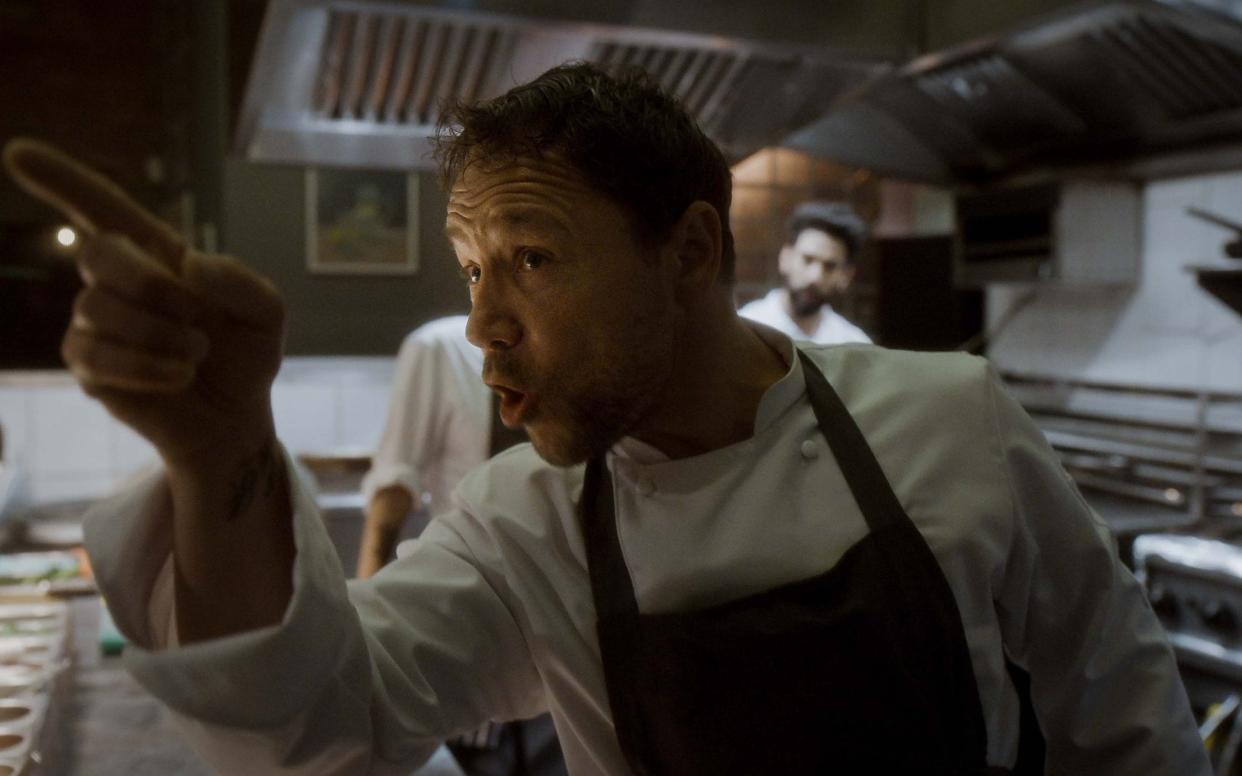Boiling Point, review: Stephen Graham’s kitchen nightmare would fry even Gordon Ramsay

None of Gordon Ramsay’s kitchen nightmares are a patch on this. Boiling Point is a compulsive real-time drama, set in east London, about a restaurant in meltdown on the busiest night of the year. We know it’s in real time for one particular reason: the film plays out in one unbroken take, which hasn’t been digitally fudged – as it was in Birdman or 1917 – but is genuinely one continuous shot.
This stunt calls for roving camerawork plotted out with smashing choreographic precision by cinematographer/camera operator Matthew Lewis, while all the actors, led by Stephen Graham’s spiralling head chef, remain on constant alert. One minute, we’re privy to blistering spats between Graham’s Andy and his stressed underlings; the next, we’re following Lauryn Ajufo’s waitress to Table 7, where one entitled customer is dead set on being impossible.
The challenge that director Philip Barantini and his whole team have set themselves is a kick to observe, and makes the film come alive as soon as more than one player’s on screen. What works best about Boiling Point is how it braids these two jittery high-wire acts at once: the spectacle of its own making, and the equally fraught one of food-as-theatre, in which just as much can go wrong in a split second, and there isn’t a moment to lose.
Personalities in the lively script, by Barantini and James Cummings, take precedence over an overarching plot. That’s exactly as it should be: in fact, only when you feel the film straining for an arc about the self-medicating Andy and his financial debts to his ex-boss (a funny, raffish Jason Flemyng) does it take a turn for the ordinary. It’s much more compelling in Altman-esque observational mode, feeding off the bustle, friction and human comedy of what running a restaurant is like.
Barantini’s own experiences as a head chef inspired a short film of the same name, also starring Graham, in 2019, which he has hereby expanded with wit and flair. You won’t find a better account of the infamous antipathy between kitchen stalwarts (Ray Panthaki’s dagger-staring meat specialist, say) and their front-of-house colleagues, personified by Alice Feetham’s hapless hostess, who offers steak to a trio of Instagram idiots claiming to be influencers, without realising it’s off the menu.

The dressing-down she gets from overburdened sous-chef Carly (an especially brilliant Vinette Robinson, who swiped Best Supporting Actress at the British Independent Film Awards) is one highlight of writing and performance. But there’s a quieter moment in the rear kitchen, between a motherly pastry chef (played by Graham’s real-life wife, Hannah Walters) and her troubled junior (Stephen McMillan) that’s supremely touching, too. Barantini folds these well-acted moments skilfully into the mix, while planting crucial details (a customer’s severe nut allergy) next to goosingly trivial ones (they’re seated on Table 13 – oh dear).
Graham’s Andy will be remembered as one of his signature men on the verge. He stomps through proceedings haranguing everyone but himself, even though in the final reckoning he tends to be most at fault. He shows up late, gets through the night on alcohol and worse, and makes heedless snap decisions that come back to haunt him reels later.
The unravelling of his psyche is not so much a Basil-Fawlty-esque comedy of errors as a tragedy of one, gaining watch-through-your fingers suspense as it proceeds. After two viewings, I still don’t think the ending lands with the hard-hitting impact it wants. But Boiling Point grips remorselessly while it’s spinning all these plates, and somehow ladles onto them a smorgasbord of great, frazzled acting from all concerned.
15 cert, 95 min. Dir: Philip Barantini. In cinemas and available on digital on demand from January 7


